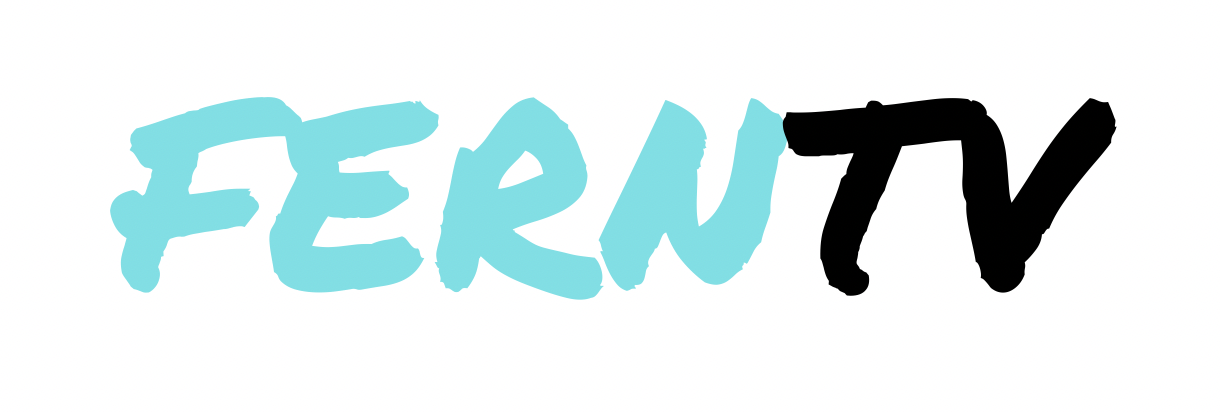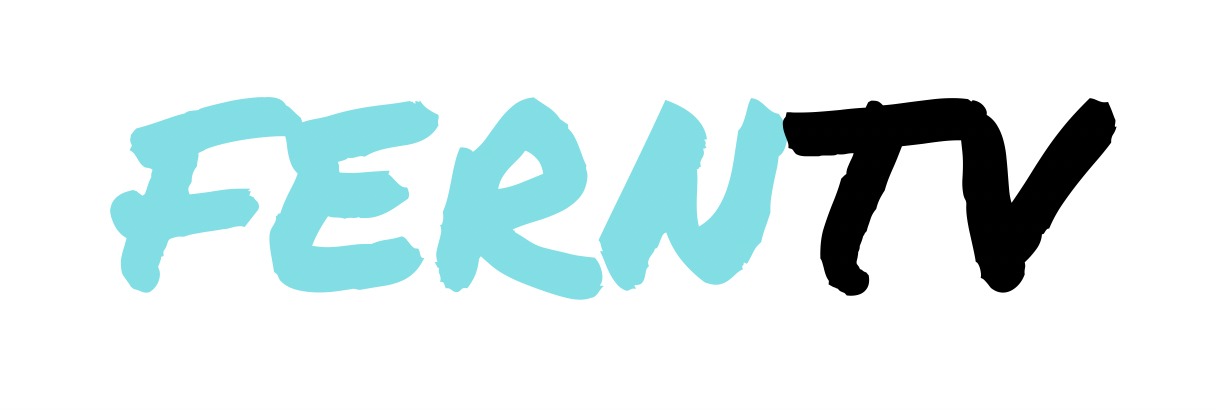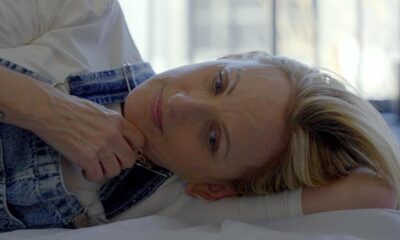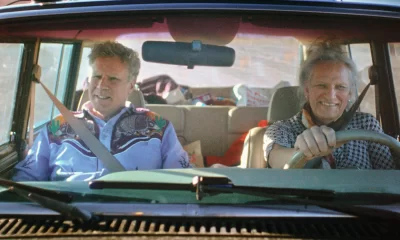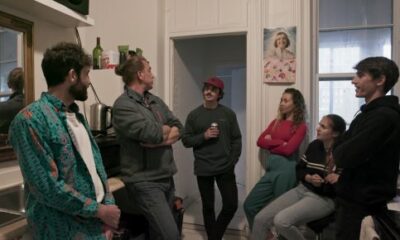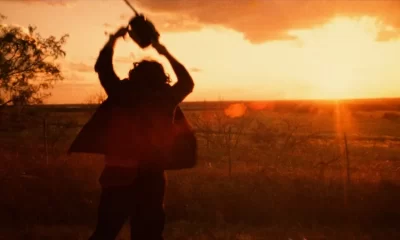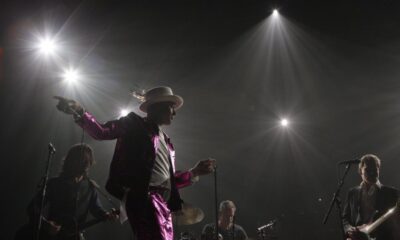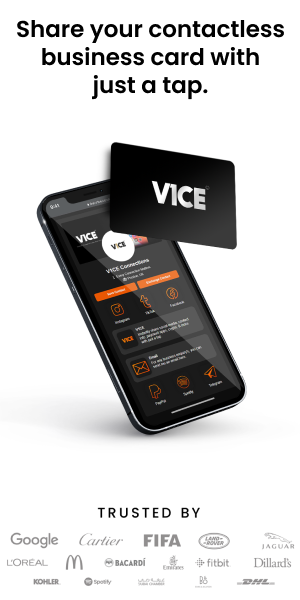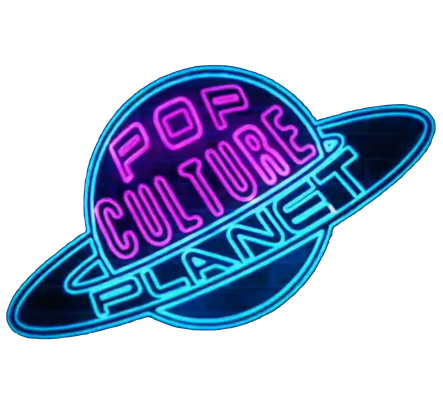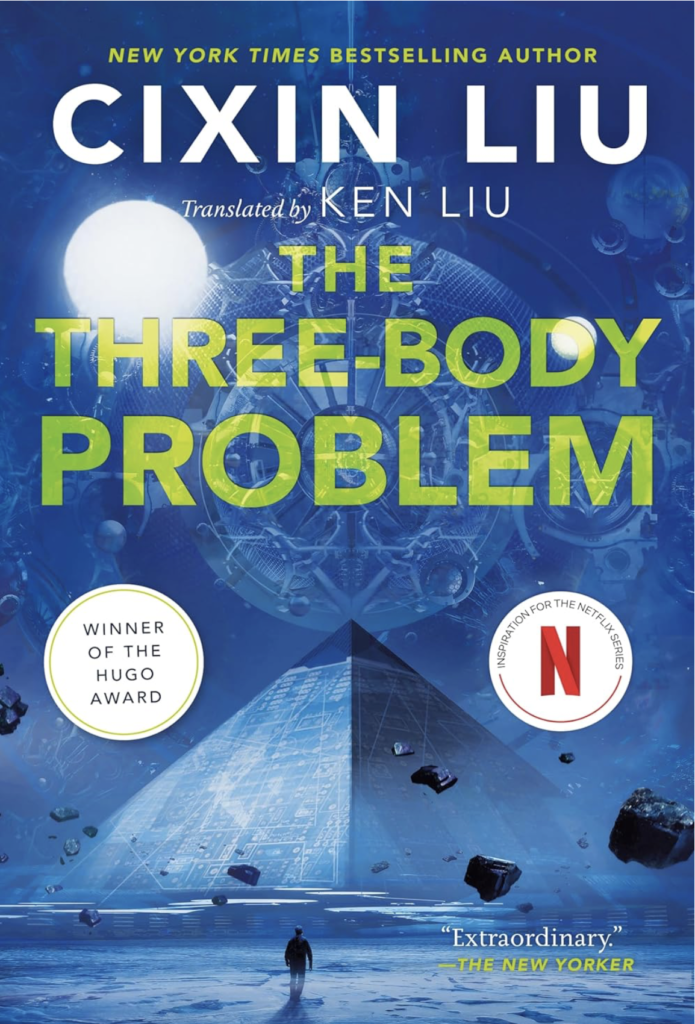Uncategorized
RECOGNIZING WHO’S ALL UP IN YOUR FACE!
It’s time we face up to facial recognition
They say that it is all in your face. Nothing is more true than this statement especially in today’s world. Facial recognition technology is common now that we hold on to our phones. It has got to point to where our privacy is no longer upheld.
Director Josh Freed touches on this aspect of facial recognition in his documentary “In Your Face“. It will be premiering on Friday, January 21st at 9PM on CBC’S Nature of Things and free streaming online at CBC GEM.
Freed dives deep into facial blindness where people have no clue who they are talking to. To those considered super recognizers who have the ability to find a criminal. Freed considers facial recognition a superpower discussing this with many experts throughout this documentary.
FERNTV speaks with director Josh Freed who discusses this compelling topic.
Facial Recognition
FERNTV: What was it that sparked your interest in facial recognition and to do the research on this topic? What is something that happened to you and something that you wanted to figure out?
Josh: I read a piece about super recognizers working for New Scotland Yard police in England. They “never forgot a face”. Even if they’d met someone briefly decades ago.
I got intrigued by that as well as how we all recognize faces. Which includes me, as I’m not especially good at it. I was also fascinated by face recognition technology which is spreading fast everywhere. From how we open our phone to how police can track us. This is often without our knowledge or consent.
What was the science behind that and how did it differ from how we humans see faces?
The more we researched the more I realized that machines were just copying our human brains. Machines have this extraordinary ability to unconsciously measure and identify faces.
We think we recognize people from their eyes nose and mouth. It turns out we mostly subconsciously measure their face, like a surveyor: the distance between their eyes, the gap between their mouth and forehead, etc. – a skill we’ve developed from infancy.
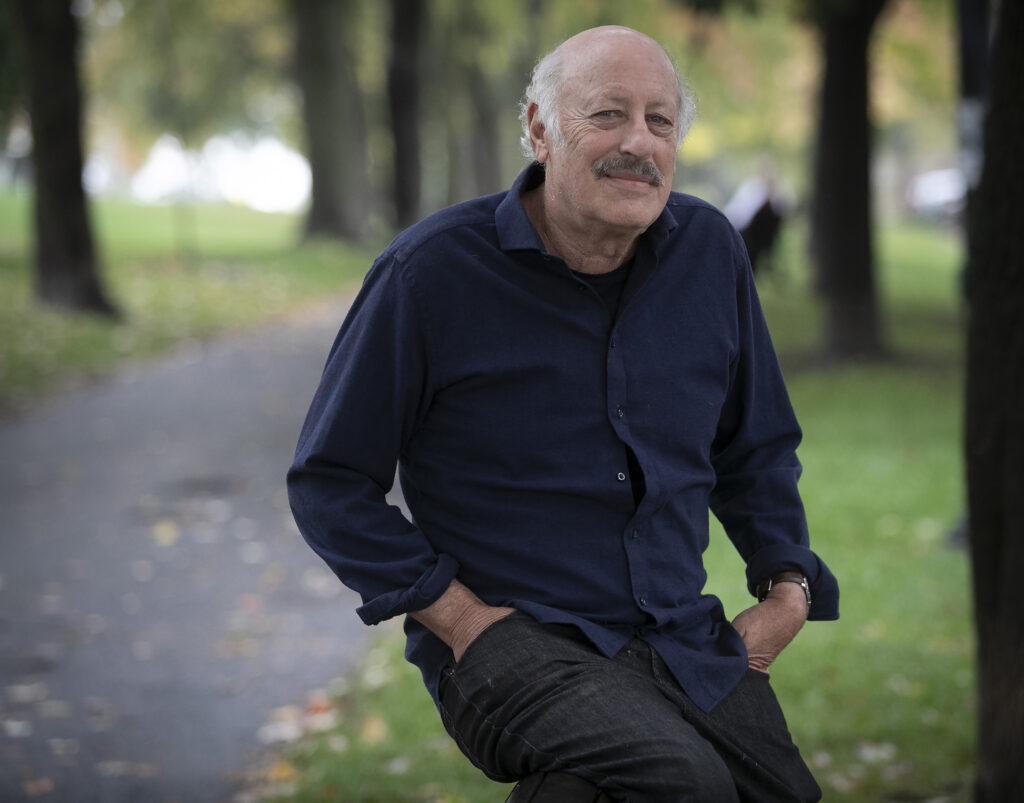

But we don’t know that we do that, even though we are remarkable at it.
The average person recognizes about 5000 faces, including countless celebrities we’ve never met.
I just got utterly fascinated by how such a seemingly ordinary human skill was actually a superpower we
didn’t realize we had. Also, that our human way of identifying people was driving the new face recognition technology that’s simply mimicking our brains
I could see it was a terrifically fascinating film and fortunately CBC thought so too.
Facial Blindness
FERNTV: There are probably many subtopics when it comes to facial recognition. But why was it so important to discuss facial blindness?
Josh: Because the extremes help illuminate the ordinary. Face blindness, like super recognizing, affects about two per cent of the population.
In fact we found an incredible woman who is the film’s most central character. Karla is a Montreal reverend who can’t recognize any faces at all. This including her own daughter when she meets her away from their house . In fact, sometimes Karla can’t even recognize herself in a mirror
Yet Reverend Karla is an astonishing intelligent, bright, perceptive and terrific person. She’s found ways to spot many of her congregation members through their walking style, birthmarks and voice.
Yet when it comes to faces people are as indistinguishable to her as a bunch of golden retrievers. Her story is utterly fascinating.
And some famous people are similarly afflicted including anthropologist Jane Goodall, Apple computer genius Steve Wozniak, neurologist and author Oliver Sacks as well as Brad Pitt.
Super Recognizers
FERNTV: Was it difficult for super-recognizers to be part of this documentary and what was that process like?
Josh: It was difficult to find super recognizers to interview as many people don’t know they are. They think lots of people are as good as them, when only 2 per cent of the population can pass a super recognizer test.
In fact, in the film we’ll give viewers some tests to see how good they are recognizing faces.
The British police force have squads of qualified super recognizers. We spent time with two who showed us their almost magical powers.
One, Kelly Desborough, routinely walks into stadiums with over 40,000 people holding a photograph of the suspect. He is found in minutes.
Some super recognizers wish they could turn the power off. They recognize people everywhere but can’t say so, or they’ll be seen as stalkers.
Interestingly, many say they are average at most other intelligence tasks – and terrible at remembering names.
Superpower
FERNTV: What are the dangers of calling this a “superpower” that people have when it comes to facial recognition?
Josh: I’m not sure there is a danger. I’d never thought of the word. Not until Karla the face blind reverend used the word. It was to describe how she sees other average people who can recognize many faces.
Then face recognition experts explained they see it exactly the same way, too. So I came to realize that recognizing is a hidden human superpower almost none of realize we have.
The average person recognizes about 5000 faces, including countless celebrities we’ve never even met. We’re so tuned to recognize faces we often see them where they aren’t – in clouds, rocks, trees – even sinks!
Ethnicities
FERNTV: When it comes to differentiating ethnicities, do you feel that the only way we can improve this is through technology? Rather than just humans just evolving through time?
Josh: Like most people I was always embarrassed by the fact I can’t recognize other ethnicities well. But it turns out this is a universal problem everywhere. Most Caucasians think Asians all look the same. Most Africans think Caucasians look the same and Asians think everyone else does.
The first year of life is the crucial determiner. If we are exposed to many diverse faces in the first year of our lives we will probably be good at this for decades. If we are exposed to only our own race in that first year, we will likely never make up the lost ability.
So the answer lies in growing up in more ethnically diverse communities. Once we do that, we may all be as exceptional at recognizing other races as we are at our spotting our own.
FERNTV: What are other subtopics that you did not cover? Perhaps something that you might want to mention sometime in the future?
Josh: That our brains are remarkably evolved machines for recognizing faces. We have one type of single brain cell that recognizes noses. Another a mouth, a third the distance between our eyes or our forehead and our mouth.
Meanwhile another type of single cell puts all this info together like a jigsaw puzzle to identify each and every specific person. It’s astonishingly simple but beautiful and miraculous in Nature’s way
David Suzuki
FERNTV: What is it like to work with David Suzuki? What you have learned from him in this process?
Josh: David Suzuki was not available for these shoots because of his isolating from COVID. He’s a highly intelligent, very warm and hard-working person who was a pleasure to deal with.
He lives up to his reputation in every way.
FERNTV: What do you want your audience to take away from “In Your Face”
Josh: The act of recognizing someone is an astonishing piece of brain magic. It’s evolved in us for millennials to help to tell friends and family from stranger or foe.
So, when you say a simple “Hi Joan, how are you?” you’ve just done a remarkable magic trick that you have no idea how you’ve done.
But I’m hoping this film will finally help everyone who sees it understand exactly how we do it.
-

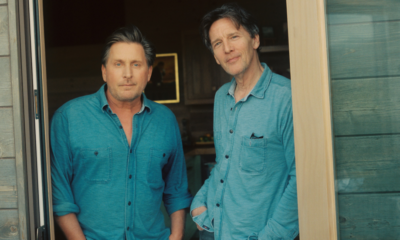

 ACTORS/ACTRESSES12 months ago
ACTORS/ACTRESSES12 months agoBRATS @Tribeca Film Festival 2024
-

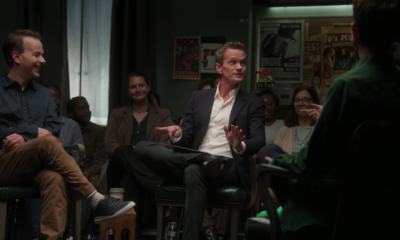

 FEATURES12 months ago
FEATURES12 months agoGroup Therapy @Tribeca Film Festival 2024
-

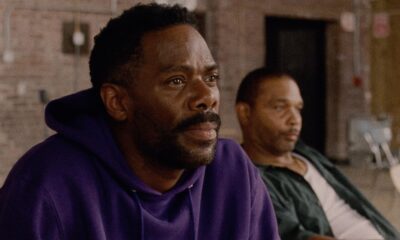

 ACTORS/ACTRESSES12 months ago
ACTORS/ACTRESSES12 months agoColman Domingo Blesses in Sing Sing @SXSW 2024
-

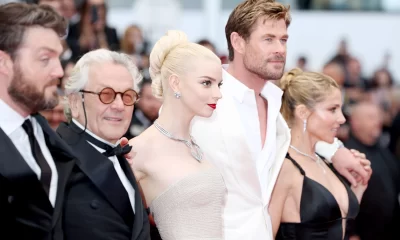

 ACTORS/ACTRESSES11 months ago
ACTORS/ACTRESSES11 months agoFuriosa Gets a Stunning 7-Minute Standing Ovation @Cannes 2024
-

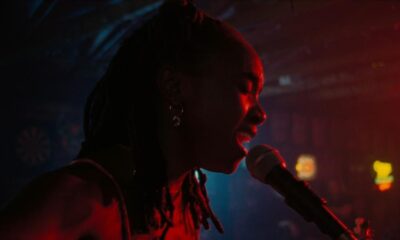

 BIPOC12 months ago
BIPOC12 months agoDandelion Exceeds Expectations @SXSW 2024
-

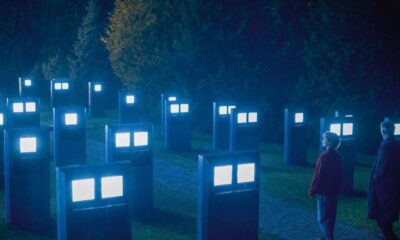

 FEATURES12 months ago
FEATURES12 months agoDavid Cronenberg’s The Shrouds to Premiere @Cannes 2024
-

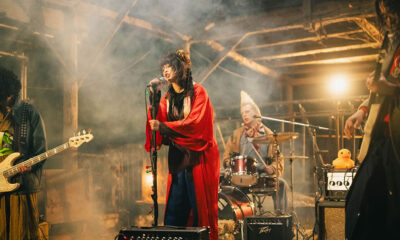

 FEATURES6 months ago
FEATURES6 months agoThe Gesuidouz Rocks Up @TIFF 2024
-

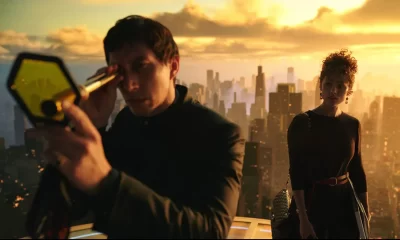

 ACTORS/ACTRESSES11 months ago
ACTORS/ACTRESSES11 months agoMegalopolis Receives Massive 10-minute Standing Ovation @Cannes 2024
